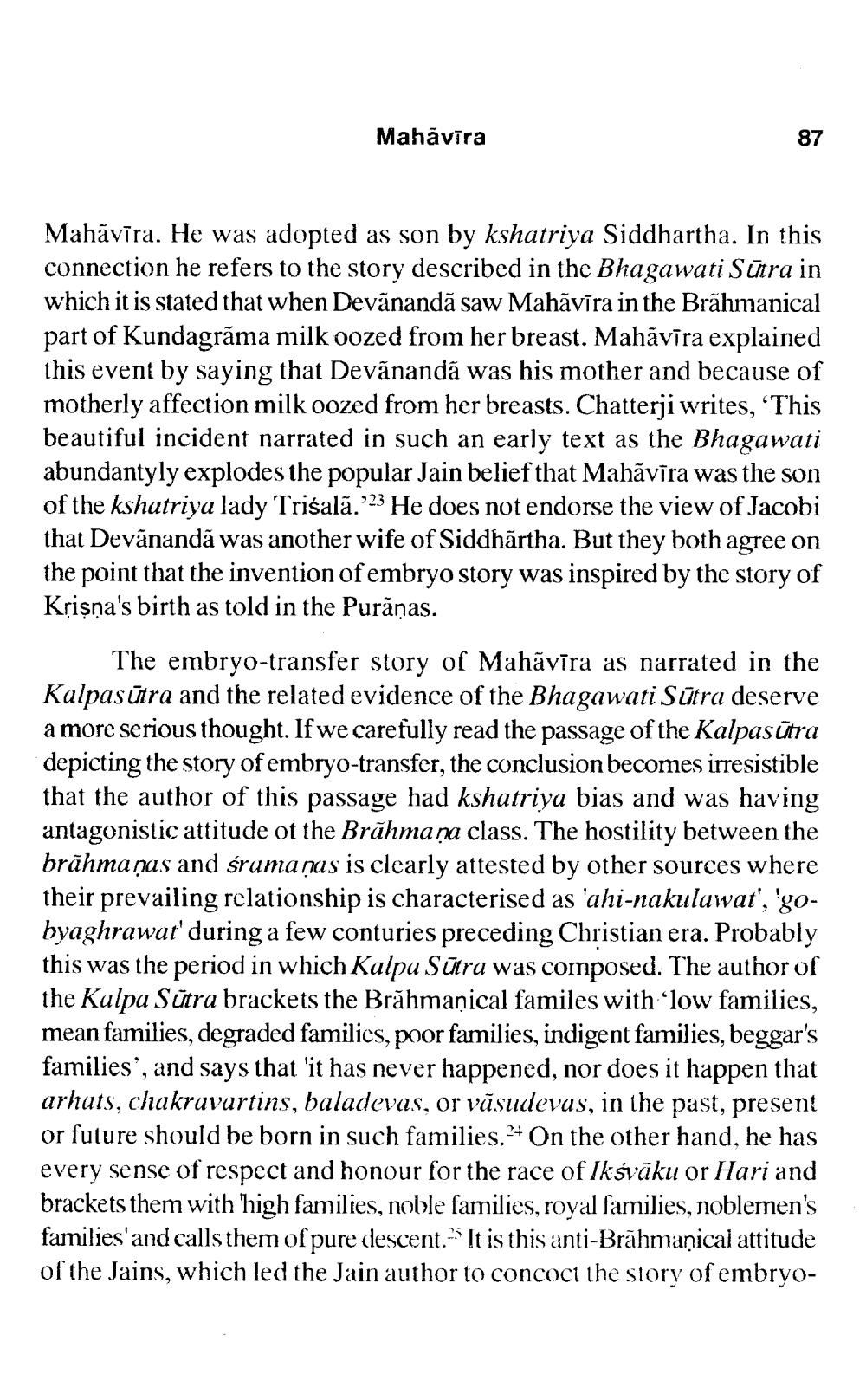________________
Mahāvīra
87
Mahāvīra. He was adopted as son by kshatriya Siddhartha. In this connection he refers to the story described in the Bhagawati Sūtra in which it is stated that when Devanandã saw Mahāvīra in the Brahmanical part of Kundagrāma milk oozed from her breast. Mahāvīra explained this event by saying that Devanandã was his mother and because of motherly affection milk oozed from her breasts. Chatterji writes, "This beautiful incident narrated in such an early text as the Bhagawati abundantyly explodes the popular Jain belief that Mahāvīra was the son of the kshatriya lady Triśalā."23 He does not endorse the view of Jacobi that Devananda was another wife of Siddhartha. But they both agree on the point that the invention of embryo story was inspired by the story of Krisna's birth as told in the Purāņas.
The embryo-transfer story of Mahāvīra as narrated in the Kalpasūtra and the related evidence of the Bhagawati Sūtra deserve a more serious thought. If we carefully read the passage of the Kalpasūtra depicting the story of embryo-transfer, the conclusion becomes irresistible that the author of this passage had kshatriya bias and was having antagonistic attitude of the Brahmaņa class. The hostility between the brāhmaṇas and śramaņas is clearly attested by other sources where their prevailing relationship is characterised as 'ahi-nakulawat', 'gobyaghrawat' during a few conturies preceding Christian era. Probably this was the period in which Kalpa Sutra was composed. The author of the Kalpa Sutra brackets the Brahmaṇical familes with 'low families, mean families, degraded families, poor families, indigent families, beggar's families', and says that 'it has never happened, nor does it happen that arhats, chakravartins, baladevas, or vasudevas, in the past, present or future should be born in such families. On the other hand, he has every sense of respect and honour for the race of Ikśvāku or Hari and brackets them with high families, noble families, royal families, noblemen's families' and calls them of pure descent. It is this anti-Brāhmaṇical attitude of the Jains, which led the Jain author to concoct the story of embryo




